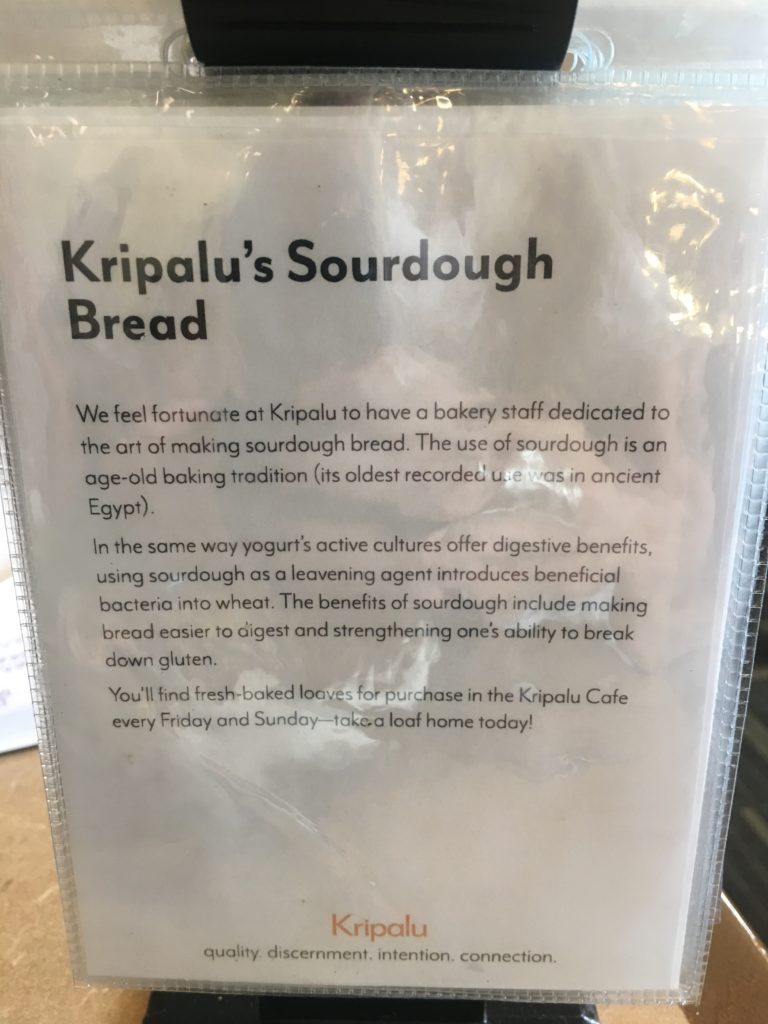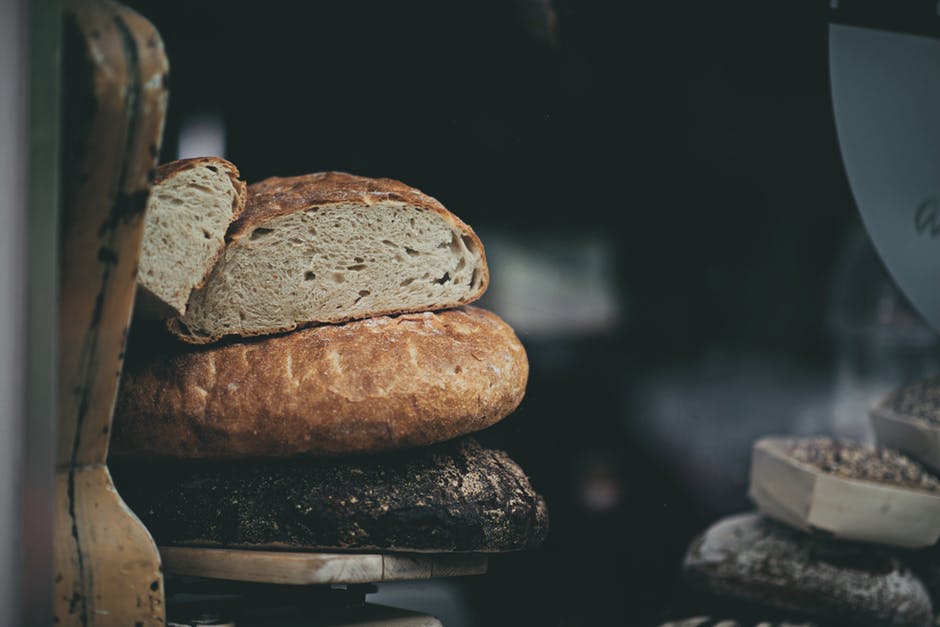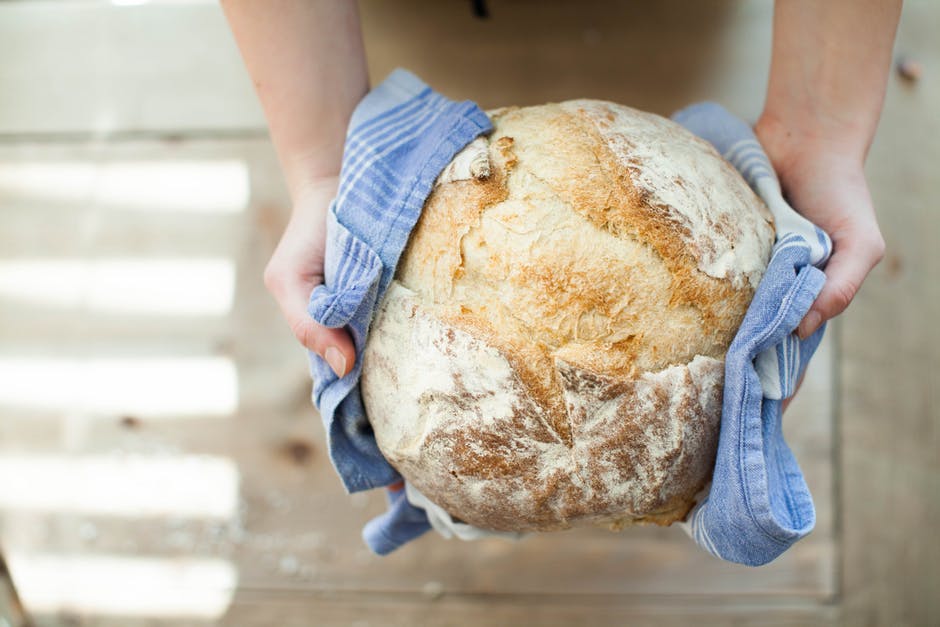Hey, what’s up, hello.
There’s something I’ve been thinking about for a long long while. And that thing is SOURDOUGH.
Recently I was having a conversation with two of my health coach friends (hi Amanda and Jackie!) and I said,
“You guys, I’ve been eating gluten a lot recently.”
“Really?”
“I’m just loving sourdough bread.”
“Ohhhhhhhhhhh. Well, that’s different.”
Note: these ladies would never gluten-shame me (haha!), but since all three of us have worked as health coaches for Dr. Frank Lipman, we all GENERALLY tend to lean towards his recommended way of eating — based on our own experimentation and the success we’ve seen with his patients on a gluten-free diet. So me saying I’ve been eating gluten “a lot” would be a little bit of a surprise, that’s all.
I’ve always known sourdough was fermented and better for digestion than regular white or wheat bread, but I have admittedly never looked deeply into it.
The sourdough conversation has been coming up a lot recently, and this weekend at Kripalu I noticed a sign about sourdough in the dining room.

“In the same way yogurt’s active cultures offer digestive benefits, using sourdough as a leavening agent introduces beneficial bacteria into wheat. The benefits of sourdough include making bread easier to digest and strengthening one’s ability to break down gluten.”
Well, that’s very exciting. Looking into it further, I found the following:
Dr. John Douillard on “Secrets to Enjoying Gluten Again” (very interesting article & video)
“Sourdough bread has a fermentation process that actually helps to break down the gluten grain and makes the gluten significantly easier to digest.”
He has also recently written a book called “Eat Wheat“: A Scientific and Clinically-Proven Approach to Safely Bringing Wheat and Dairy Back Into Your Diet.
I really respect Dr. John Douillard, and I’ve been curious to read his book for awhile to get his perspective, because I find the title quite controversial, considering the everything-must-be-gluten-free craze.
Here’s an interview that’s definitely worth watching if you’re interested in this topic, with Dr. Mercola and Dr. Douillard about How To Safely Bring Wheat Back Into Your Diet.
Dr. Douillard’s stance is that it’s our impaired digestive function that’s causing so many food sensitivities and reactions, and the quality of the food we’re eating, vs. just the gluten.
According to Mercola’s article, Douillard says “the primary reason people feel ill when eating wheat is not because there’s something inherently bad about wheat, but rather because it’s hard to digest, and part of the problem relates to an impaired ability to digest foods in the first place.”
He continues:
“In essence, you need to reset your digestive function. Once that’s done, you can begin to enjoy certain types of bread (such as organic whole wheat and sourdough) in moderation without suffering any ill effects.”
Looking to repair your digestion? Try Dr. Frank Lipman’s cleanse – it’s the only digestion-reset cleanse I recommend because I’ve seen the results in patients personally, hundreds of times.

How is Sourdough Bread Made?
From our trusty friends at Wikipedia:
Sourdough bread is made by the fermentation of dough using naturally occurring lactobacilli and yeast. Sourdough bread has a mildly sour taste not present in most breads made with baker’s yeast and better inherent keeping qualities than other breads, due to the lactic acid produced by the lactobacilli.
Tiffany from Don’t Waste The Crumbs says, in this very helpful article:
“In traditional sourdough recipes, you’ll find three ingredients: sourdough starter (which consists of flour and water), salt and flour. There is no yeast, no milk, no oils and no sweeteners. It’s about as natural as you get when it comes to bread.”
Read more: What Is Sourdough? Sourdough 101: Benefits of Sourdough
What’s So Great about Lacto-Fermentation?
My very good friend and author of “Go With Your Gut,” Robyn Youkilis, says:
“Lacto-fermentation is all about the Lactobacillus bacteria, which feeds on sugars to create lactic acid. Aside from acting as an agent that preserves food from harmful bacteria, it also protects and even enriches the vitamins and enzyme content of food. When the right kind of bacteria are present in your body, not only are you able to digest and metabolize the foods that you chew, but your body is also better able to extract the nutrient content from those foods.”
Read more: Is The Gluten-Free Trend Finally Over?
In that article, Dr. Frank Lipman says:
“For some people, the fermentation and/or sprouting of gluten can make a big difference in how they digest and react to it. I have seen many gluten-sensitive patients who are able to digest sourdough breads and sprouted grains without a problem. However, this is not the case for everyone. Some people do best completely removing gluten from their diet, and instead, eating loads of vegetables, healthy fats and good quality proteins.”
Read More: Is Sourdough Gluten-Free? (the simple answer is no, it’s not technically gluten free, but it can be a much easier way to digest gluten for those with sensitivities).
Not All Bread Is Created Equal
Bottom line? Not all bread is created equal, and some bread, in some cases, when it’s fermented and provides you with beneficial gut bacteria and improved digestion….could actually be…dare I say it?….possibly considered….a health food. GASP!!!! And rejoice!!! ;)
NOTE: Sourdough bread is still high in carbohydrates, so although it’s better on digestion, it’s still not a prime choice for those on a paleo/keto/low carb diet. Studies have shown, however, that sourdough bread leads to a lower glucose response than regular white or wheat bread. So that’s something to consider. (another study here).
How Do You Choose A High Quality Sourdough Bread?
I loved this article from the Healthy Home Economist: How To Spot Fake Sourdough Bread.
There are tons of breads out there masquerading as true sourdough! Which really puts me in a tiff.
Personally, I am putting it on my goals list to make a great loaf of beautiful sourdough bread someday. Yum. But if you’re buying at the store, make sure to read her article first.
She says, “the label of true sourdough bread is going to list sourdough starter instead of yeast in the list of ingredients.”
Read More — 5 Reasons You’ll Never Find Real Sourdough Bread At The Supermarket
Read More — Is Store-Bought Sourdough True Sourdough?
Your best bet, aside from making it yourself? Find a great local bakery or a baker at the farmer’s market that makes their own sourdough!
Now….what do YOU think? Have you noticed a difference in how you feel when eating a high quality sourdough bread vs. other bread?
Healthy Crush Medical Disclaimer
If you have celiac disease or a gluten sensitivity, please do not take my blog as a green light to eat sourdough. As always, I am a blogger providing information, not a substitute for medical advice. Only do so under the guidance of your physician or functional medicine doctor! Thank youuuu :)



Elise says
Hi Jenny! Bread Alone has a great real (fermented) sourdough and it’s widely available in the NYC area and upstate as well :) They carry it at the Brooklyn Harvest store below my apt which is half a conventional grocery store half natural, so there is hope to find fermented sourdough in other stores!
Melissa Green Henkin says
Thanks for sharing this Jenny! I’m primarily gluten-free, but I’ve actually been incorporating a little sourdough into my diet as a gluten option, and told my husband it was a better choice than other breads, based off of articles I’ve read. I’m glad to hear that this info was accurate, and I appreciate all of the resources you provided!!